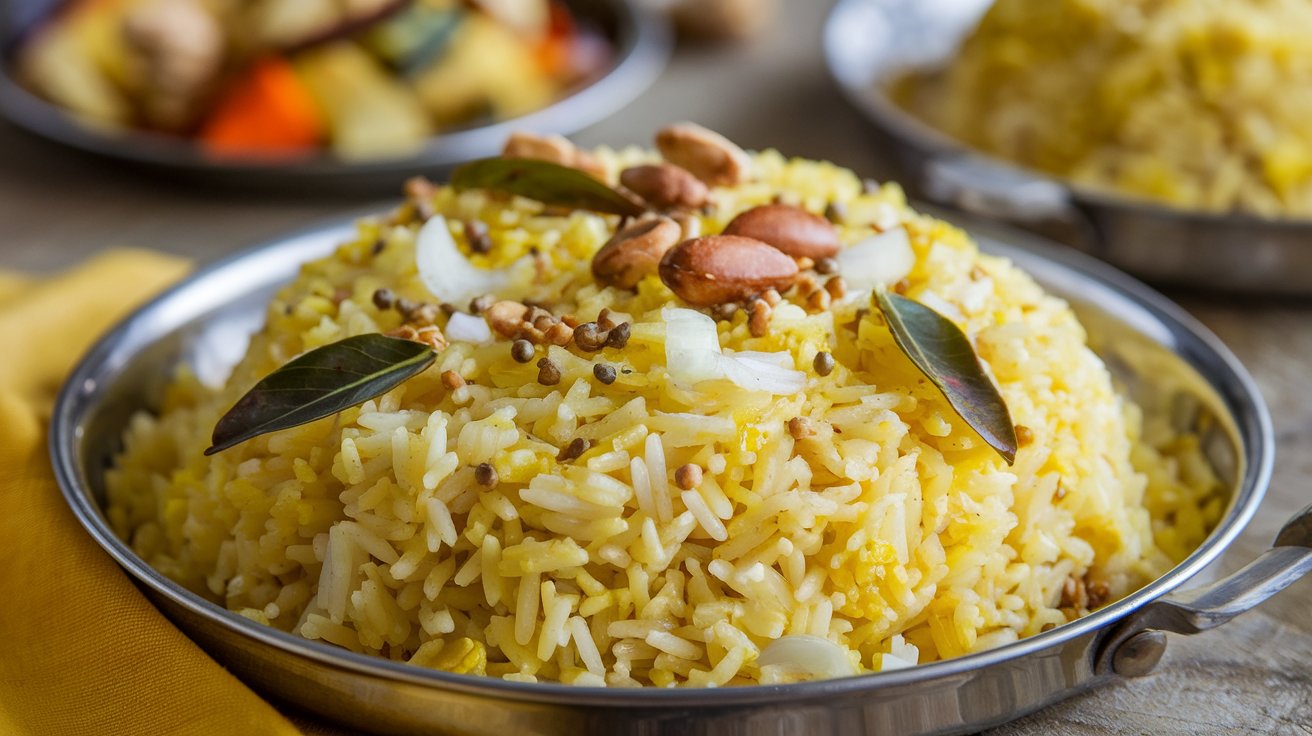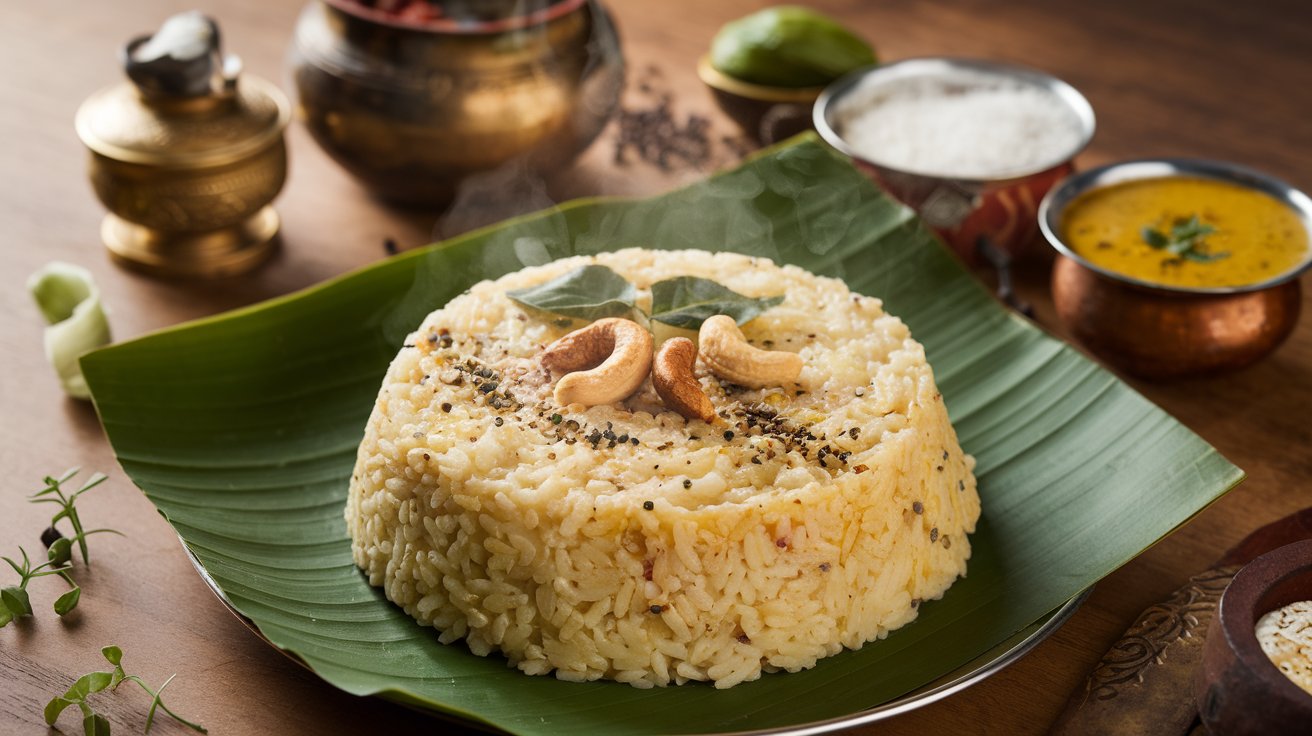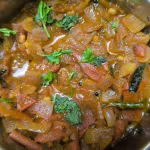

Join the Newsletter
Dive into quick, nutritious recipes, expert health tips, local food finds, and the latest in nutrition. Let’s explore healthier living together!
Unlocking the Secrets of the World’s Most Popular Rice Varieties
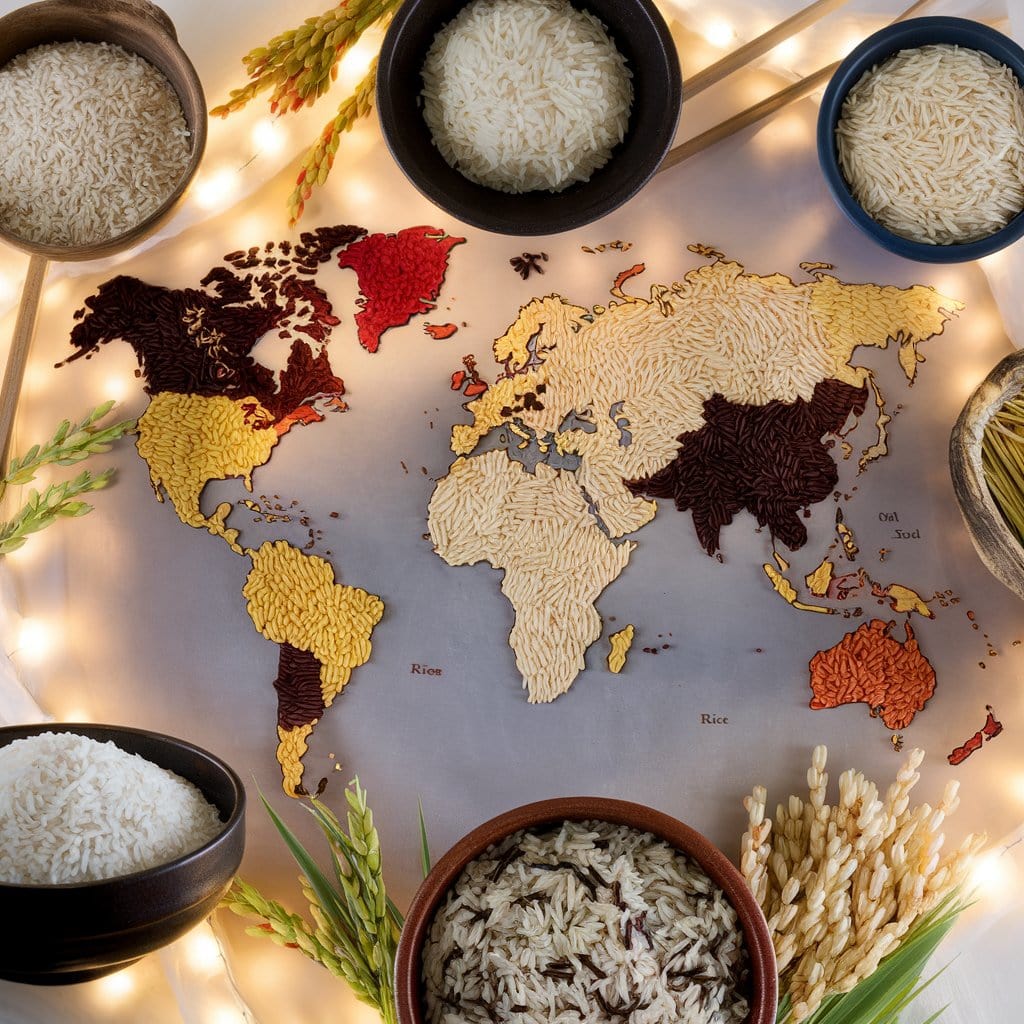
Affiliate Disclosure
Before reading this post, please be aware that some links in this article are affiliate links. This means that if you click on one of these links and make a purchase, we may earn a commission at no additional cost to you. We only promote products and services that we believe will be beneficial to our readers.
For more information, please read our full Affiliate Disclosure.
Introduction
Rice is far more than just a basic grain; it’s a symbol of nourishment, culture, and tradition. Picture a bowl of freshly cooked rice varieties, with each grain perfectly plump and warm, releasing a delicate fragrance that fills the room. This simple yet profound food is a staple in countless homes across the world, transcending borders and bridging cultures. From the fragrant fields of India where Basmati rice is harvested to the vibrant landscapes of Thailand where Jasmine rice is cherished, rice connects us all in a way that few other foods can.
The Universal Love for Rice
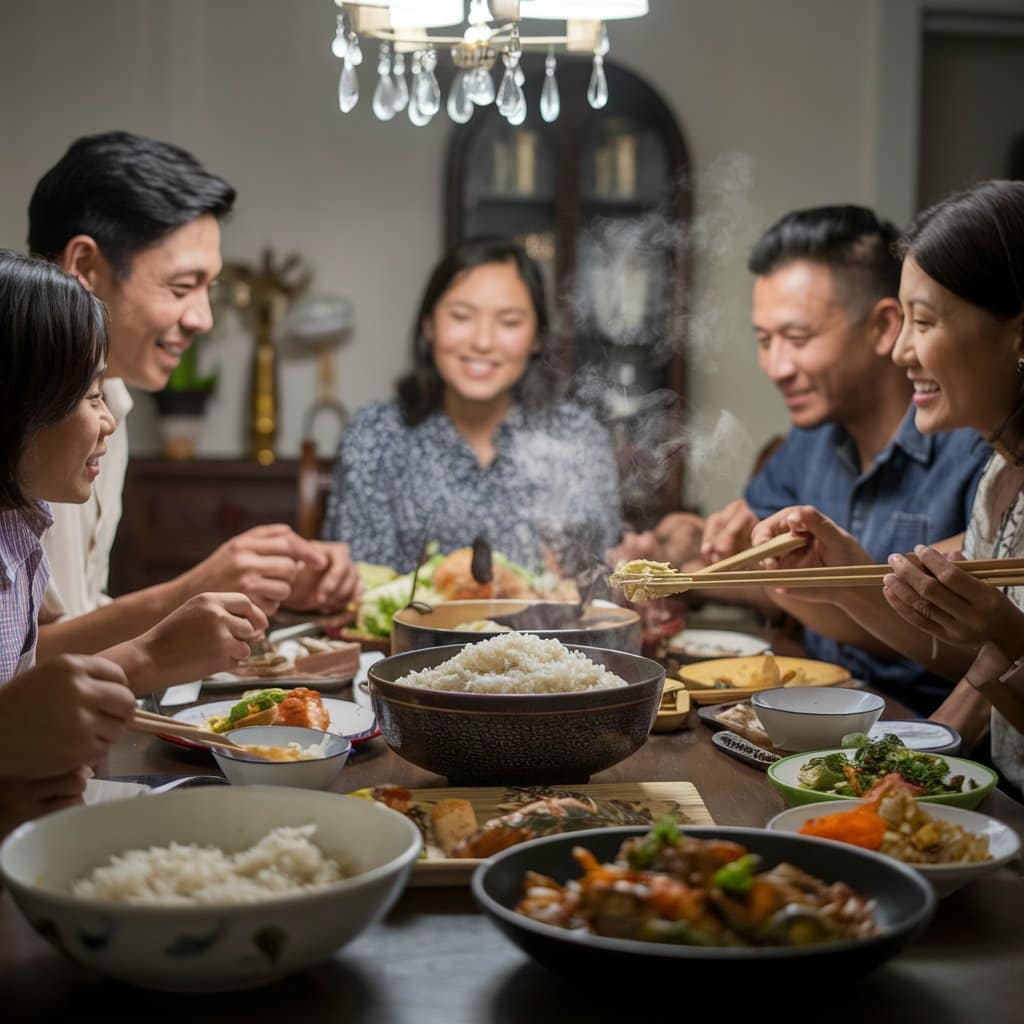
Rice is a food that unites us. Across different countries and cultures, rice is the comfort food that brings people together. Whether it’s the creamy risotto that soothes the soul on a chilly evening or the perfectly rolled sushi that offers a bite of delicate balance, rice has a way of making every meal feel like home. It’s more than just a side dish; it’s a companion to flavors, a canvas for culinary creativity, and a source of comfort in our daily lives.
A World of Rice Varieties

When you think of rice, it’s easy to lump it all into one category, but in reality, rice is as diverse as the cultures that cultivate it. The variety of rice you choose can transform a dish, adding depth, texture, and flavor that makes each meal unique. The environment in which rice is grown—from the cool, mountain regions to the warm, tropical climates—imparts distinct characteristics to each type. Whether it’s long, slender grains or short, sticky ones, every variety has a story and a purpose in the culinary world.
The Grace of Long-Grain Rice
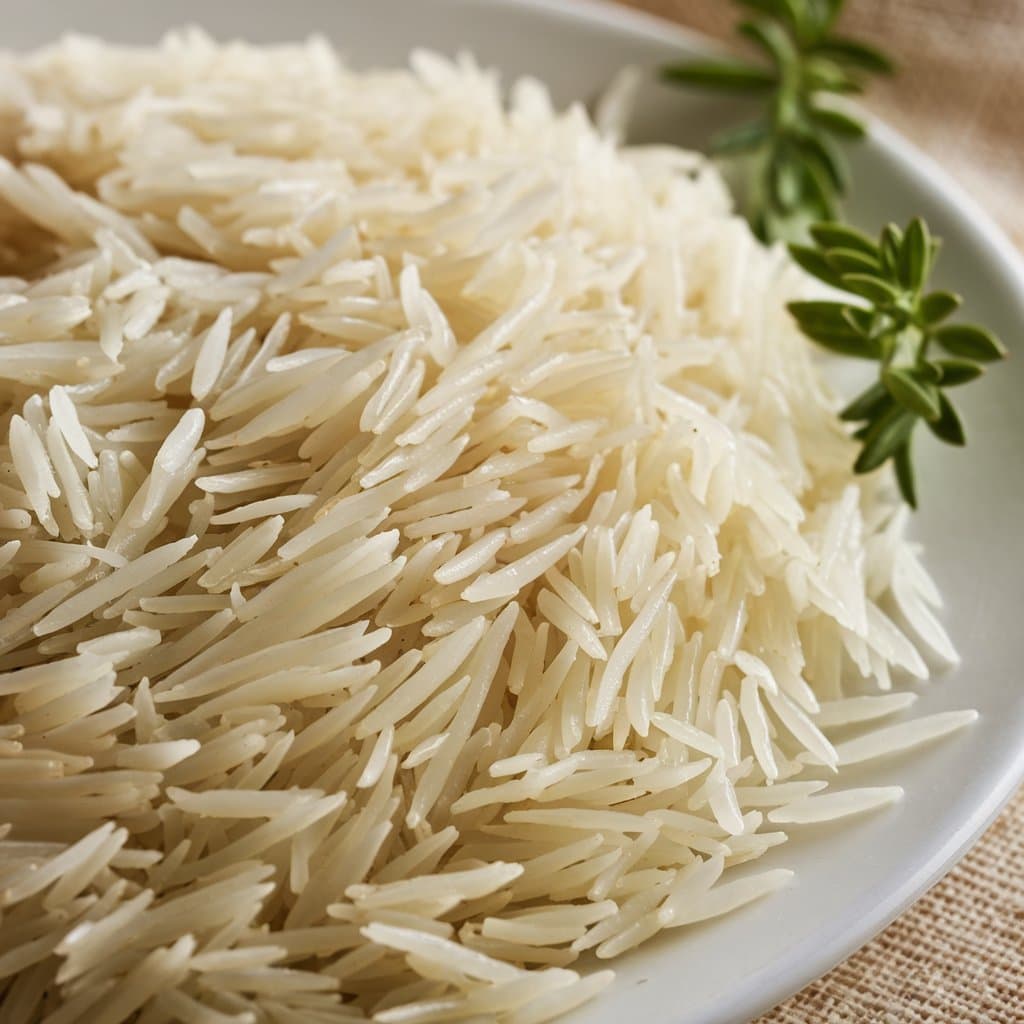
Basmati Rice: The Prince of Grains
Basmati rice, often hailed as the “prince of rice,” is a long-grain variety known for its exquisite aroma and tender texture. When cooked, it lengthens to almost double its original size, resulting in a light, fluffy texture that’s perfect for soaking up rich sauces and spices. Imagine the scent of Basmati filling your kitchen, mingling with the spices of a slow-simmered curry—it’s a sensory experience that transports you to the heart of India.
The Irresistible Aroma of Basmati
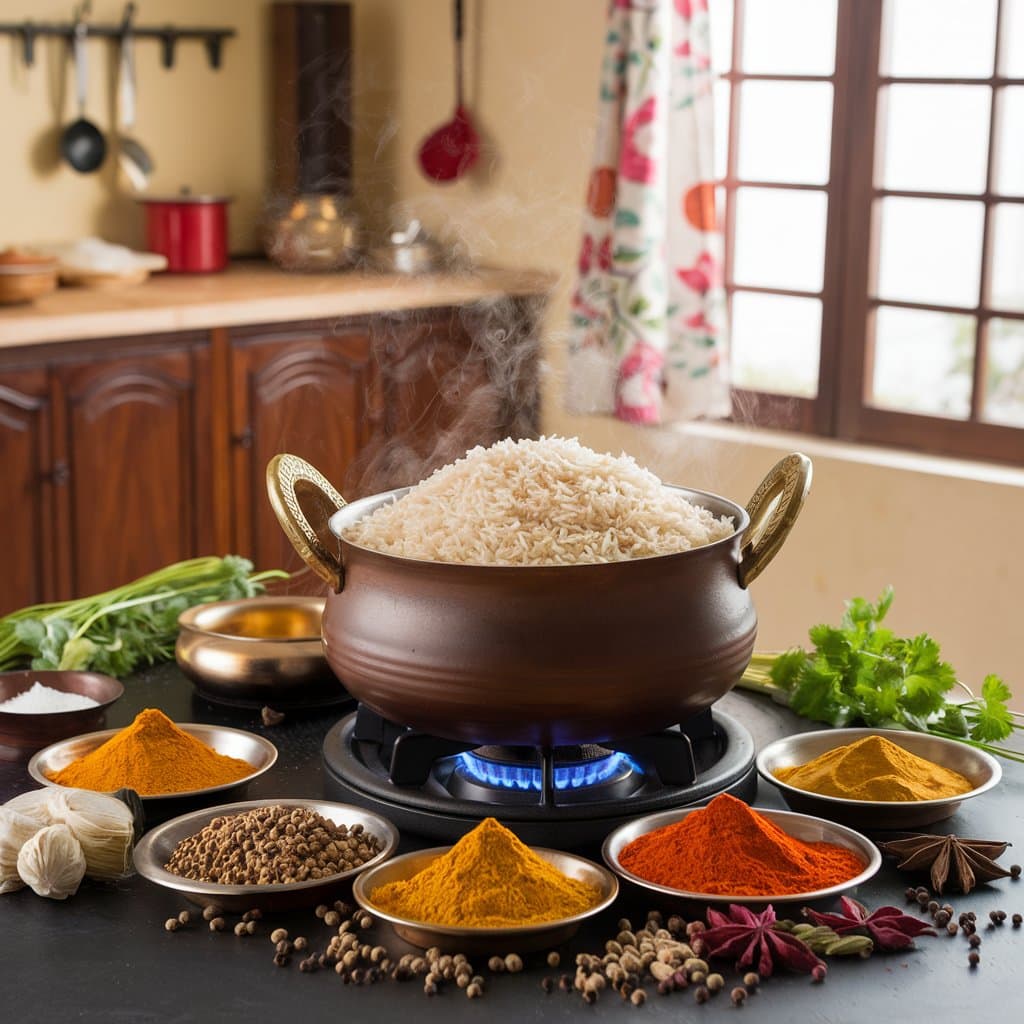
Basmati’s aroma is truly something special. It’s said that a good batch of Basmati should be fragrant enough to fill the room, enticing you before you even take your first bite. This aroma is a result of natural compounds that are enhanced during the traditional aging process, making Basmati one of the most beloved rice varieties worldwide.
Perfect Pairings for Basmati Rice
Basmati rice is an ideal match for dishes that are rich in flavor, particularly those found in Indian and Middle Eastern cuisines. Whether it’s a fragrant biryani or a creamy butter chicken, Basmati’s light texture and aromatic quality make it the perfect base for bold, flavorful dishes.
Jasmine Rice: The Queen of Fragrance

Jasmine rice, native to Thailand, is another long-grain variety that’s celebrated for its subtle floral aroma and soft, sticky texture. It’s the kind of rice that clings to sauces and enhances the flavors of the dish, creating a harmonious balance that’s both satisfying and soothing.
The Delicate Fragrance of Jasmine Rice
Jasmine rice offers a gentle, floral fragrance that complements rather than overwhelms the other ingredients in a dish. This subtlety makes it incredibly versatile, fitting seamlessly into a variety of cuisines, from Thai stir-fries to rich coconut curries.
Best Dishes to Enjoy with Jasmine Rice
Jasmine rice is the perfect accompaniment to dishes that have a bit of spice. Its mild flavor and soft texture provide a soothing counterbalance to bold, spicy flavors, making it an excellent choice for Thai green curry, lemongrass chicken, or even a simple vegetable stir-fry.
The Richness of Medium-Grain Rice
Arborio Rice: The Heart of Risotto
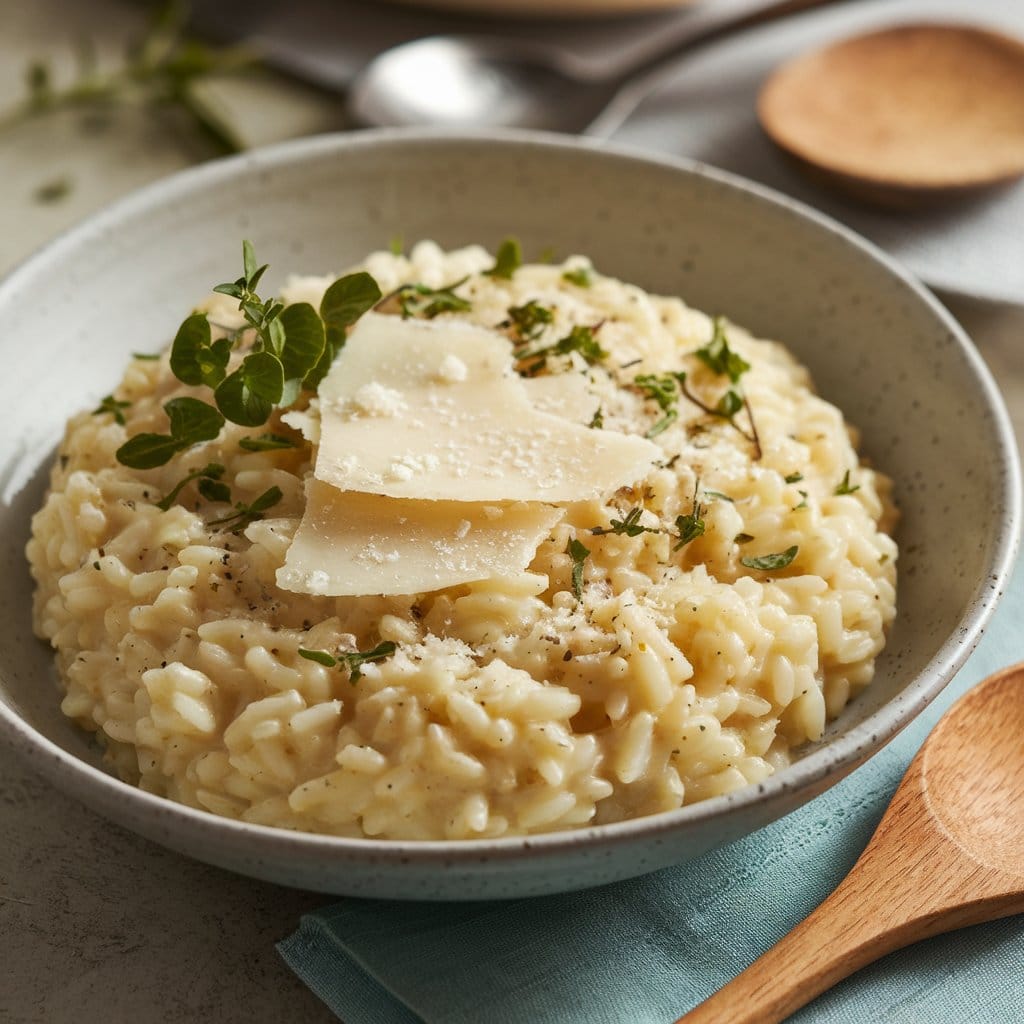
Arborio rice, a staple in Italian cuisine, is the star of any good risotto. This medium-grain rice is known for its high starch content, which gives risotto its signature creamy texture. When you’re craving something comforting and luxurious, Arborio rice is the ingredient you need.
Crafting the Perfect Risotto with Arborio
Making risotto with Arborio rice is a process that requires patience and care. As you slowly stir the rice, adding broth little by little, it transforms into a creamy, rich dish that’s both satisfying and indulgent. The final product is a bowl of risotto that’s full of flavor, with each grain of rice perfectly cooked to a tender yet slightly firm texture.
Tips for Cooking Arborio Rice to Perfection
To make the perfect risotto, start with high-quality Arborio rice and take your time. The rice needs to absorb the liquid slowly, and constant stirring helps release the starches that give risotto its creamy texture. Whether you add Parmesan, sautéed mushrooms, or a drizzle of truffle oil, Arborio rice is sure to elevate your dish.
Calrose Rice: The Versatile Medium-Grain
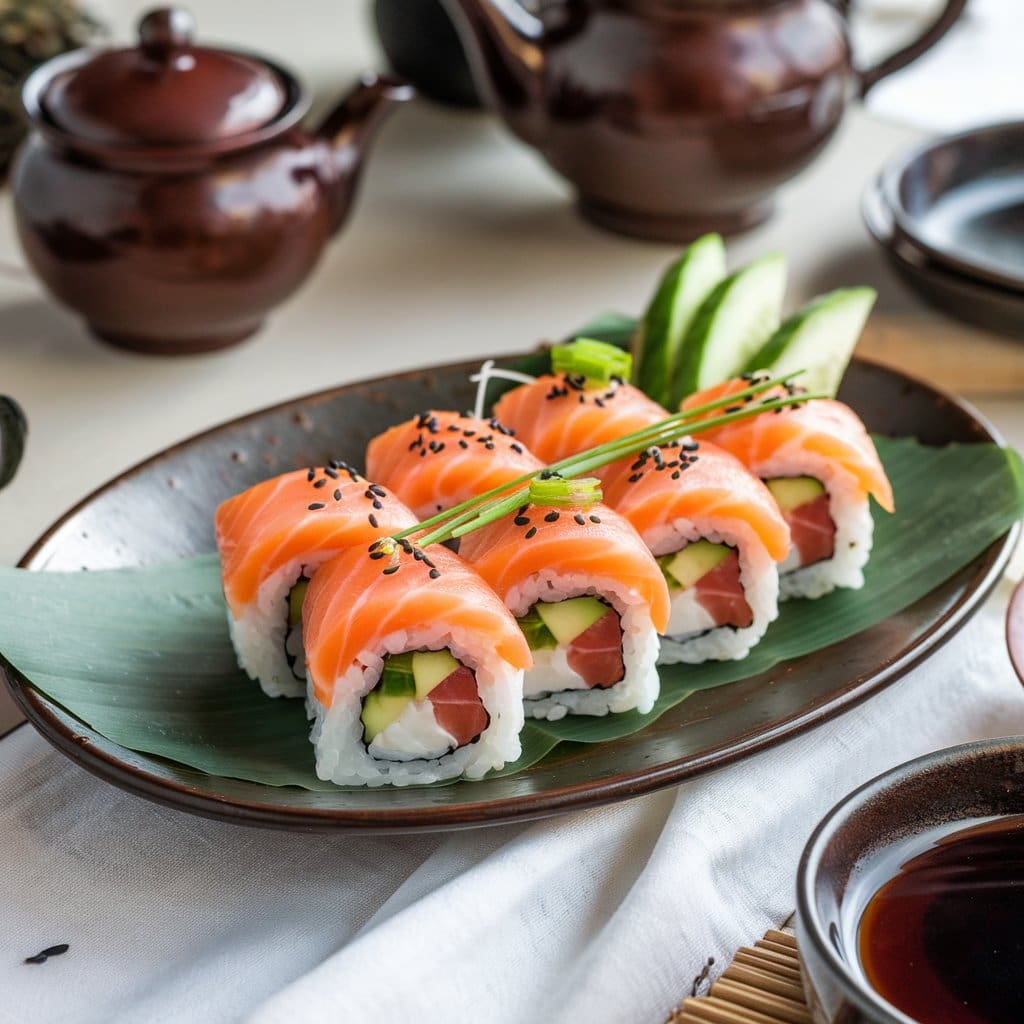
Calrose rice, developed in California, offers a slightly sticky texture and mild, nutty flavor. Because of its versatility, it fits well in both Asian and American dishes, making it a popular choice for many recipes.
Calrose Rice in American and Asian Dishes
In American cuisine, Calrose rice is often used in dishes like rice pilaf or as a side dish for grilled meats. In Asian cuisine, it’s a staple for sushi rolls, offering the perfect balance of stickiness and flavor to hold the ingredients together.
How to Cook Calrose Rice
For the best results with Calrose rice, rinse it thoroughly before cooking to remove excess starch, which can make the rice too sticky. Once cooked, let it sit for a few minutes to absorb any remaining moisture, then fluff it with a fork to separate the grains.
The Comfort of Short-Grain Rice
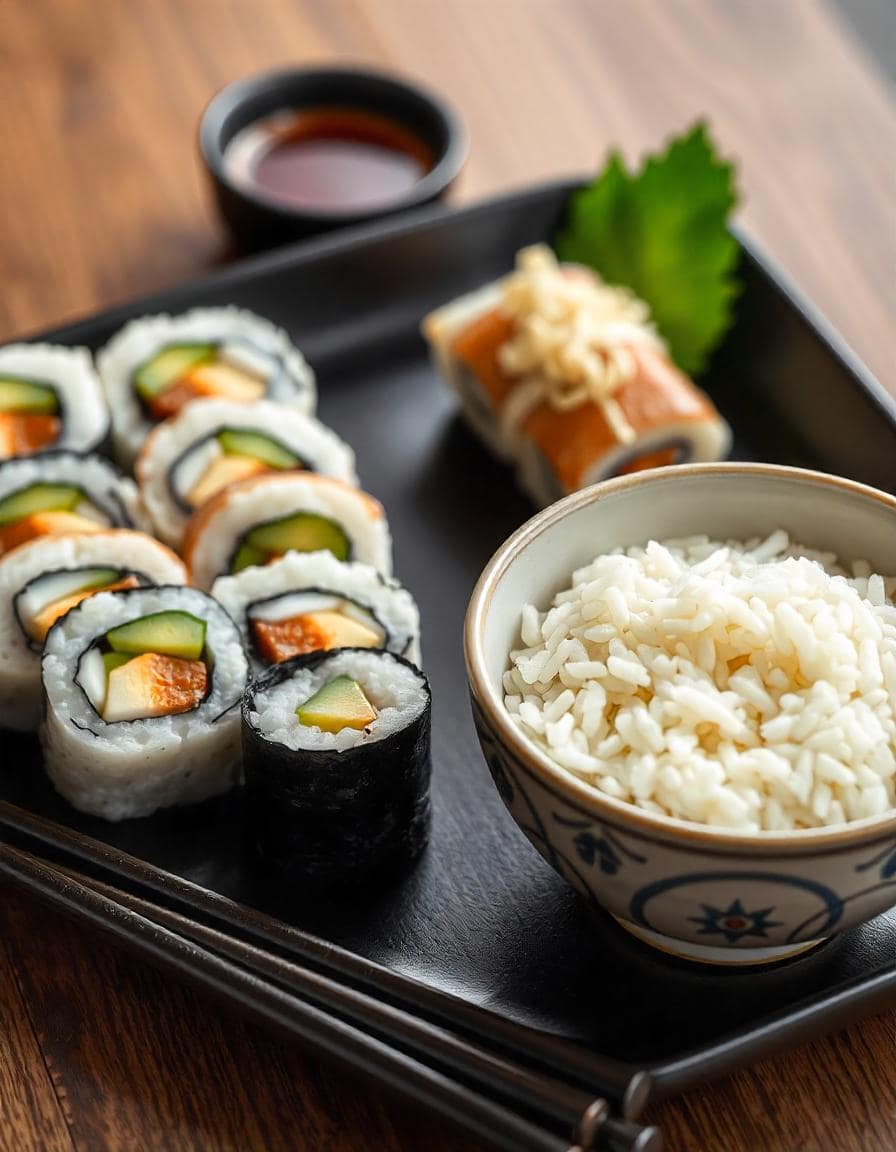
Sushi Rice: The Foundation of Sushi
Sushi rice, or shari, is a short-grain variety that’s essential for making sushi. Its high starch content gives it the sticky texture needed to hold sushi rolls together. When prepared correctly, sushi rice becomes the perfect foundation for showcasing fresh, delicate ingredients.
Mastering Sushi at Home
Making sushi at home can be a fun and rewarding experience, and it all starts with the right rice. Sushi rice needs to be seasoned with a blend of vinegar, sugar, and salt to achieve the perfect balance of flavors. With a bit of practice, you can create sushi rolls that are just as good as those from your favorite restaurant.
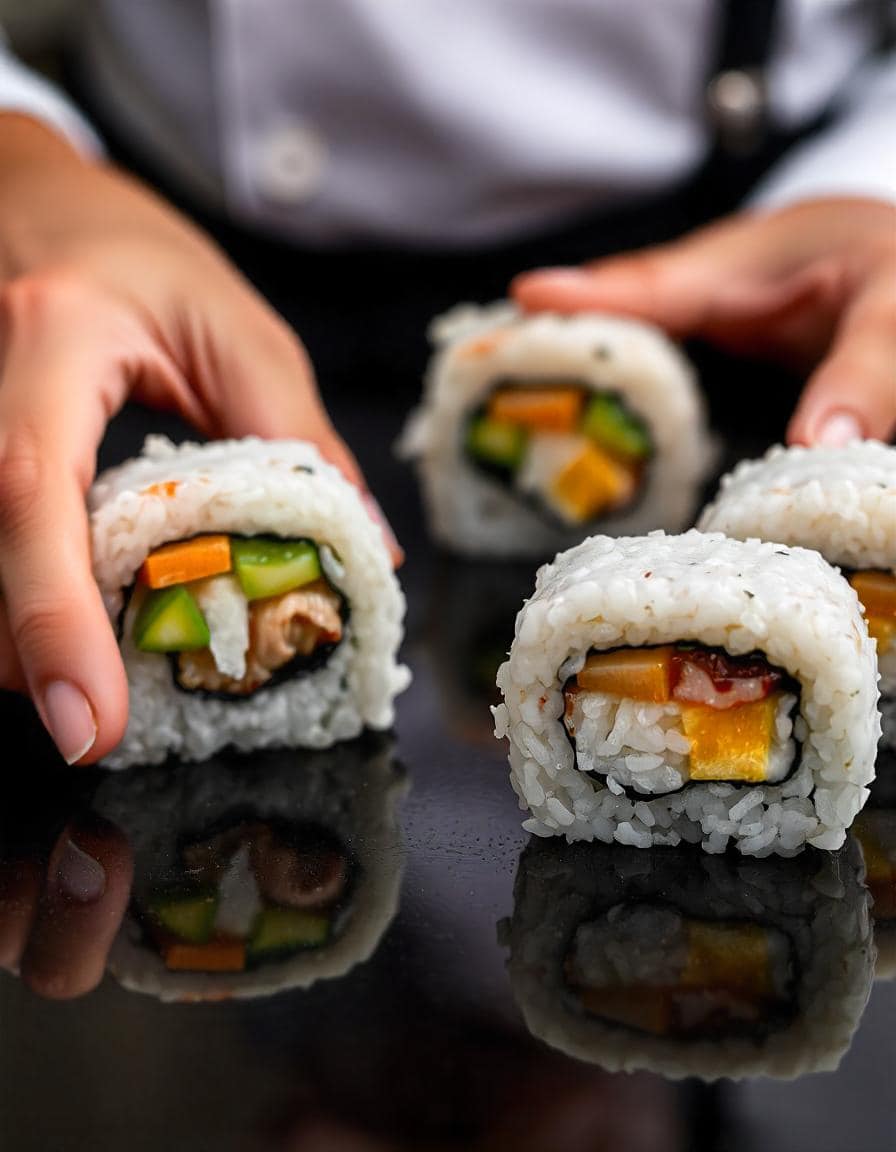
Why Sushi Rice is So Sticky
The stickiness of sushi rice is what makes it special. The high starch content allows the rice to adhere to itself and the other ingredients, creating a cohesive roll that’s easy to slice and enjoy.
Arborio Rice in Sweet Delights
Arborio rice isn’t just for savory dishes—it’s also the star ingredient in many rich and creamy rice puddings. Its ability to absorb liquid and become tender makes it the perfect base for this comforting dessert.
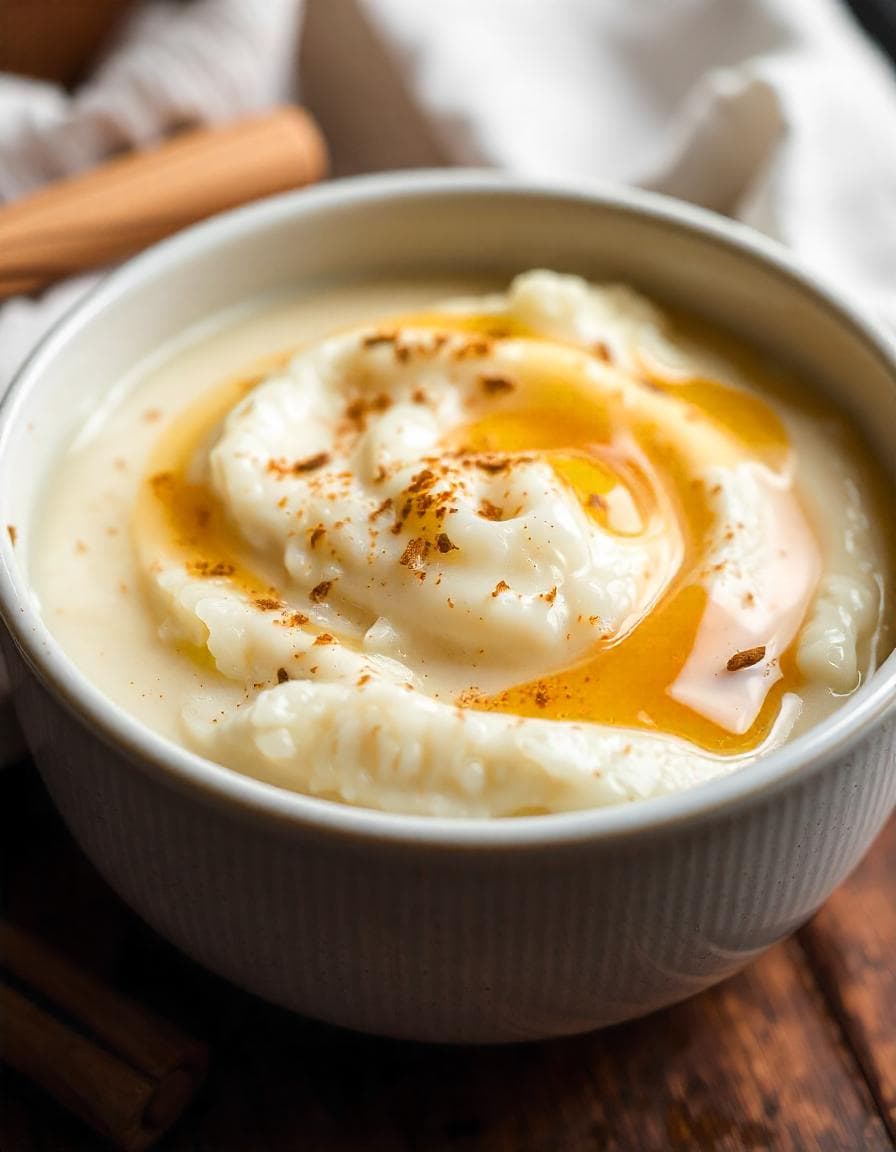
Creating the Ultimate Rice Pudding
Arborio rice transforms rice pudding into the ultimate comfort dish. The rice absorbs the milk, sugar, and spices, creating a dish that’s creamy, sweet, and utterly satisfying. It’s the kind of dessert that warms you from the inside out.
Tips for a Perfect Rice Pudding
To make the best rice pudding, cook the Arborio rice slowly in milk, stirring frequently to prevent it from sticking to the pot. Add a touch of vanilla extract and a sprinkle of cinnamon for extra flavor, and top with a handful of raisins or a drizzle of caramel sauce for a decadent finish.
The Earthy Appeal of Wild Rice
Wild Rice: A Nutritional Powerhouse
Wild rice, though often grouped with rice varieties, is technically a seed of aquatic grass. It has a chewy texture and a distinct, earthy flavor that sets it apart from other rice types. Packed with nutrients and fiber, wild rice is a great choice for those looking to eat healthily.
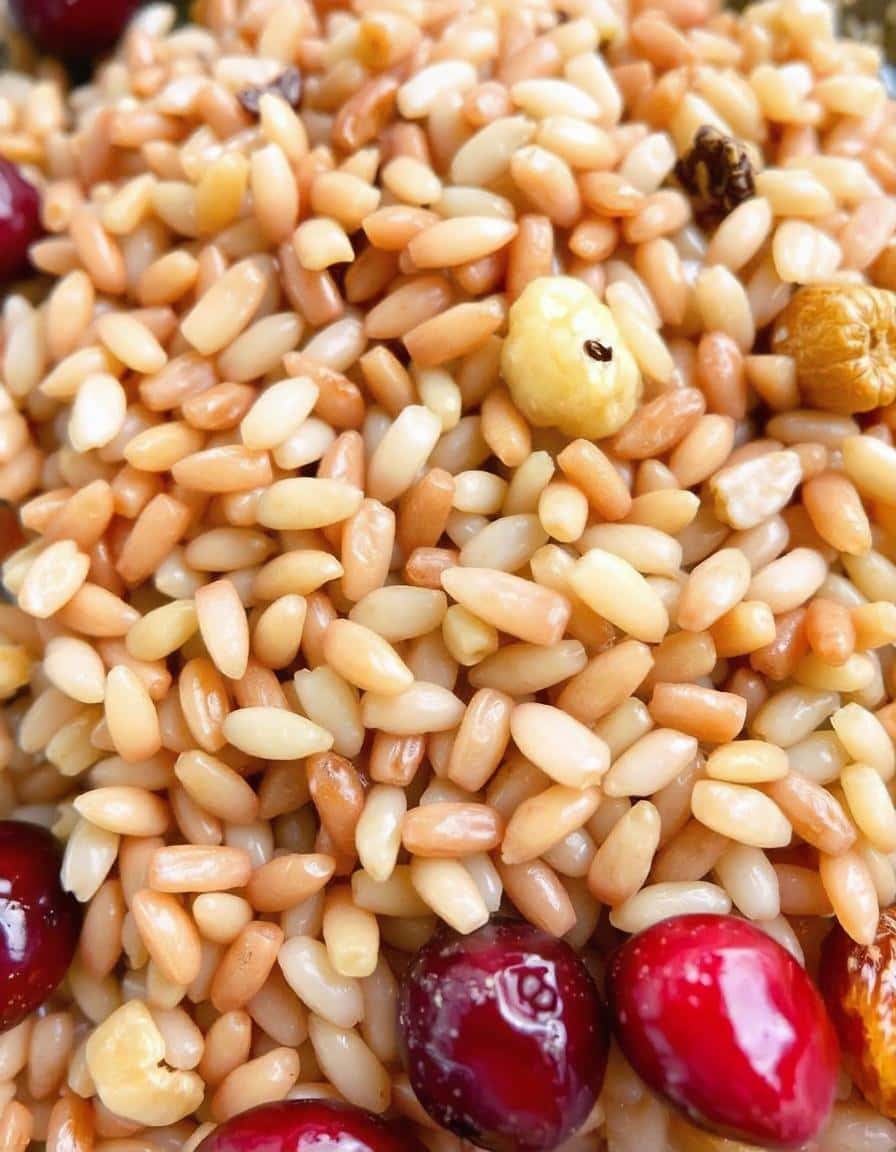
Nutritional Benefits of Wild Rice
Wild rice is lower in calories and higher in protein compared to most rice varieties, making it an excellent choice for those focused on nutrition. It’s also rich in antioxidants, which help protect the body from free radicals and support overall health.
Incorporating Wild Rice into Your Diet
Wild rice’s robust flavor pairs well with a variety of ingredients, making it a versatile addition to your meals. Use it in salads, soups, or as a stuffing for poultry. You can also mix it with other grains for a hearty and nutritious side dish.
The Cultural Importance of Rice Varieties
Rice is more than just a food; it holds deep cultural significance in many societies. From rituals to traditions, rice has played an important role in human history for centuries.
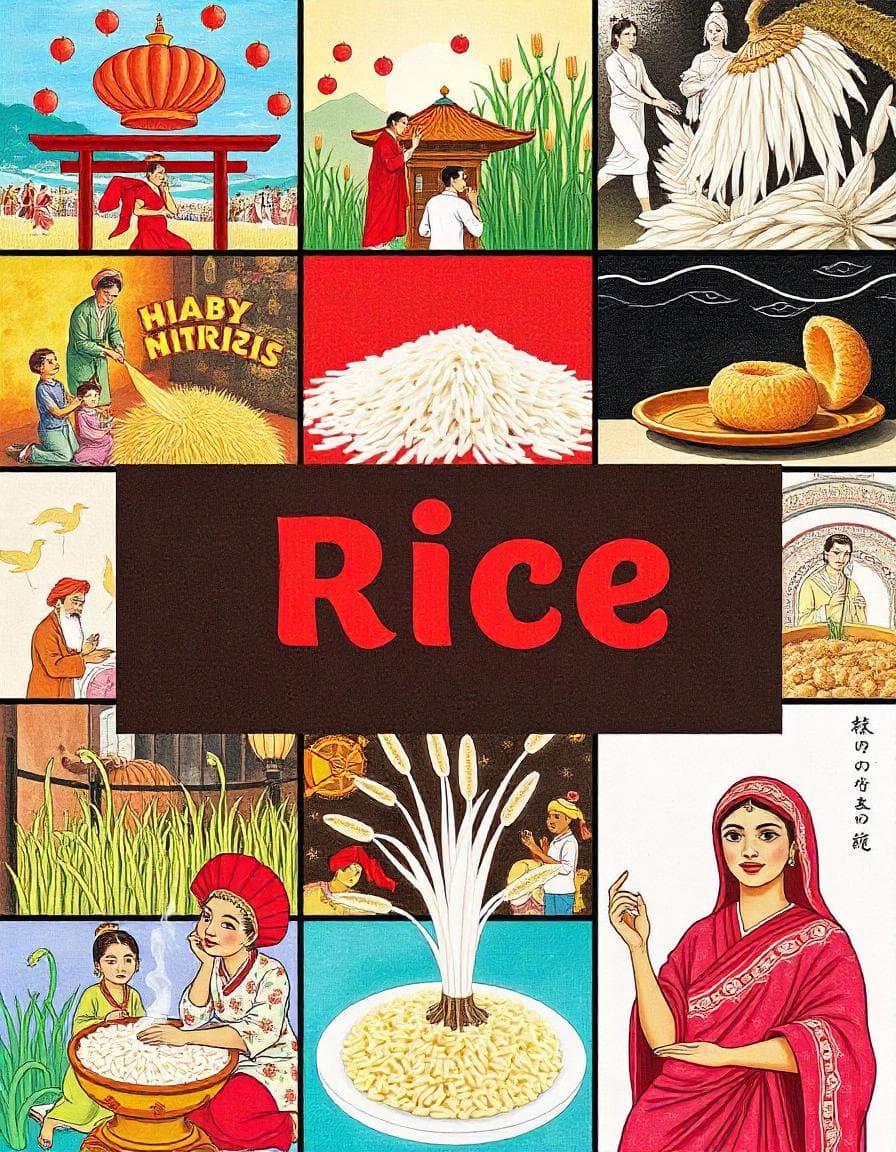
Rice in Traditions and Celebrations
In many cultures, rice symbolizes prosperity and abundance. It’s often used in festivals and rituals to bring good fortune and ward off evil spirits. For instance, in Japan, the rice harvest is celebrated with festivals that honor Shinto deities, while in India, rice is a common offering in Hindu rituals.
The Symbolic Meaning of Rice Across Cultures
Beyond its role in celebrations, rice is also seen as a symbol of life and fertility in many cultures. The practice of throwing rice at weddings, for example, is a tradition that dates back to ancient times, symbolizing the hope for a prosperous and fruitful marriage.
Health Advantages of Different Rice Varieties
While rice is often seen as a simple carbohydrate, its health benefits vary depending on the type.
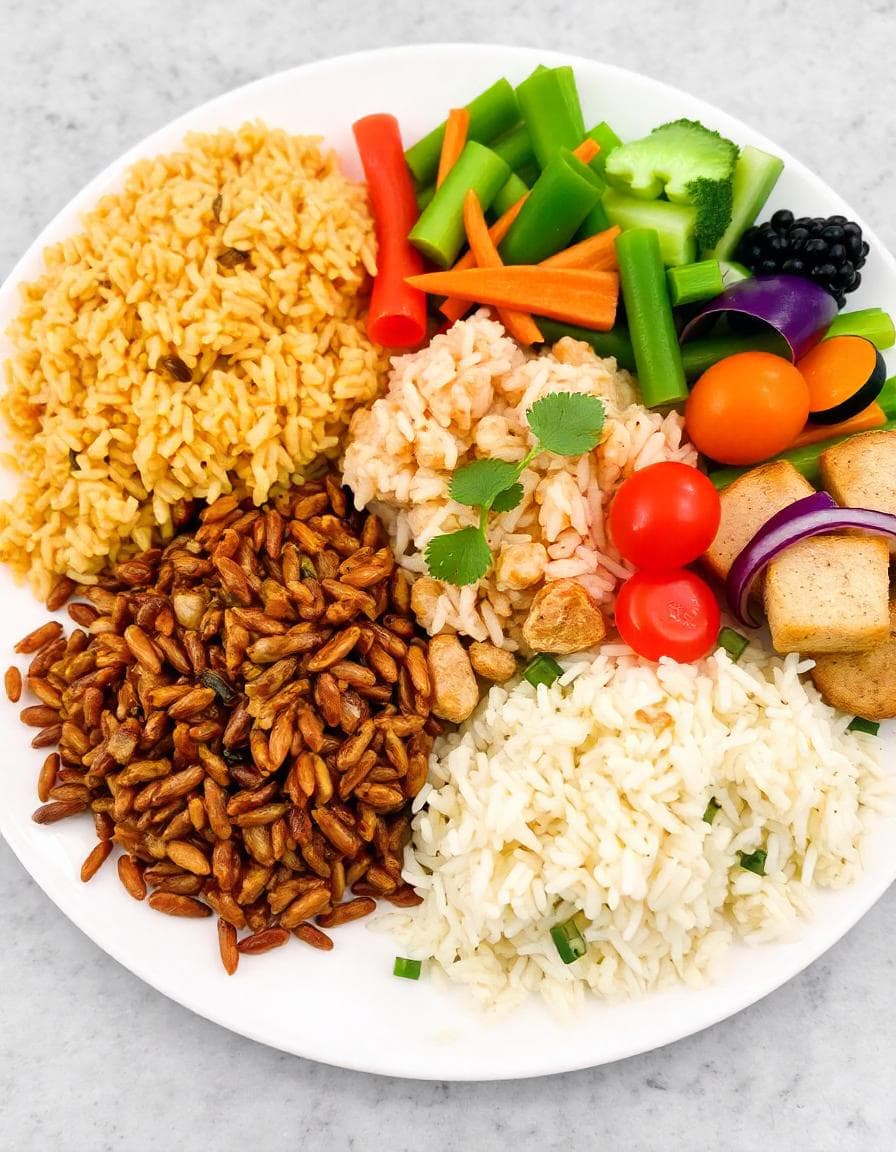
White Rice vs. Brown Rice: A Nutritional Comparison
White rice is the most common variety, but brown rice is gaining popularity for its higher nutritional value. Unlike white rice, which has been stripped of its bran and germ, brown rice retains these components, making it richer in fiber, vitamins, and minerals.
Incorporating Rice into a Healthy Diet
When eaten in moderation, rice can be a healthy component of a balanced diet. Its complex carbohydrates provide a steady source of energy, and its low-fat content makes it a good option for those watching their weight. Brown rice, in particular, is an excellent choice for those looking to increase their intake of whole grains.
Sustainability and the Future of Rice Production
As the global population continues to grow, so does the demand for rice. This has raised concerns about the environmental impact of rice cultivation, particularly in terms of water usage and greenhouse gas emissions.
The Environmental Concerns of Rice Farming
Rice farming is incredibly water-intensive, and in some regions, it has led to the depletion of water resources. Additionally, growing rice in flooded fields produces methane, a potent greenhouse gas that contributes to climate change.
Steps Toward Sustainable Rice Cultivation
Fortunately, there are efforts underway to make rice farming more sustainable. Methods such as alternate wetting and drying (AWD) help cut water use and methane emissions, while creating drought-resistant rice varieties seeks to safeguard food security amidst climate change.
Final Thoughts
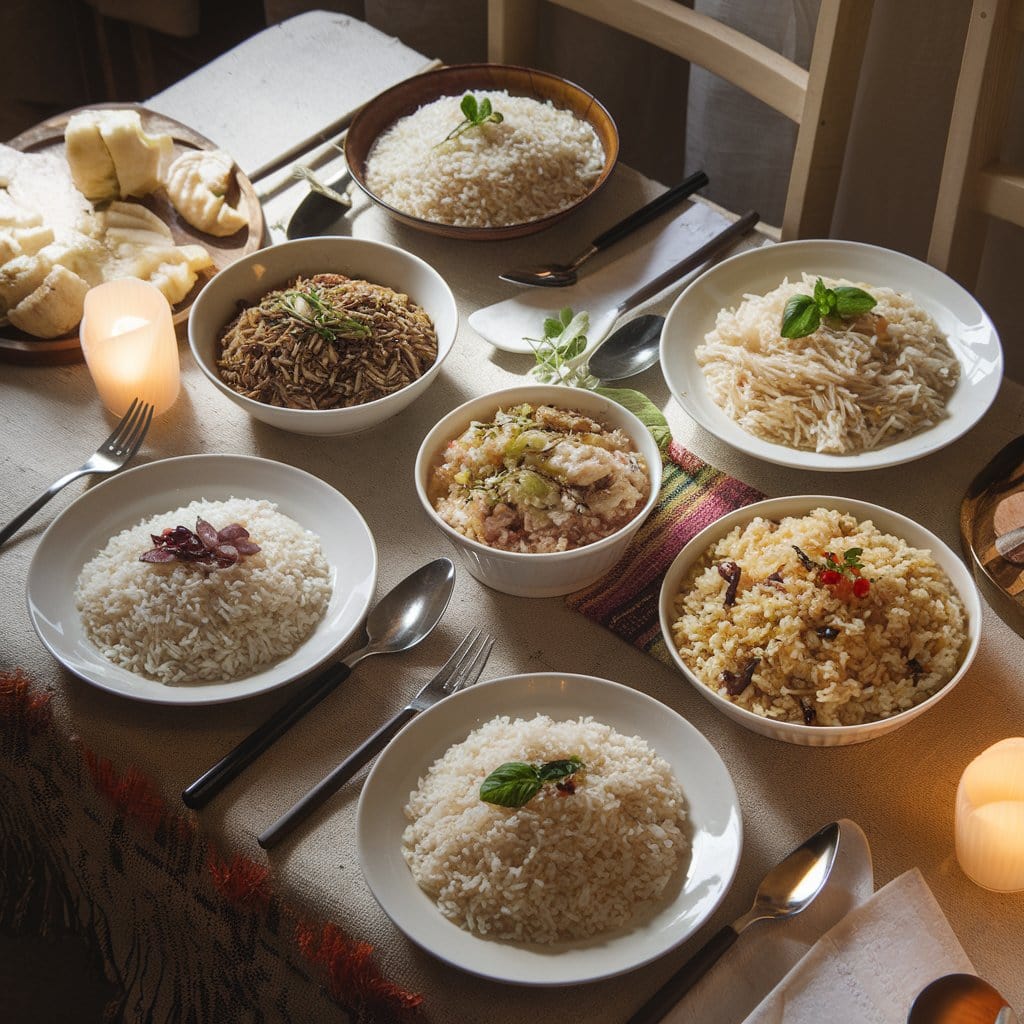
Rice is more than just a grain—it’s a global connection, a symbol of sustenance, and a reflection of diverse cultures. From the fragrant Basmati to the nutrient-rich wild rice, every variety has a unique story that adds richness to our meals. As you explore different types of rice, you’ll discover that this humble grain has the power to elevate any dish into a culinary experience. So, the next time you enjoy a bowl of rice, take a moment to appreciate its journey and the countless hands that brought it to your table.
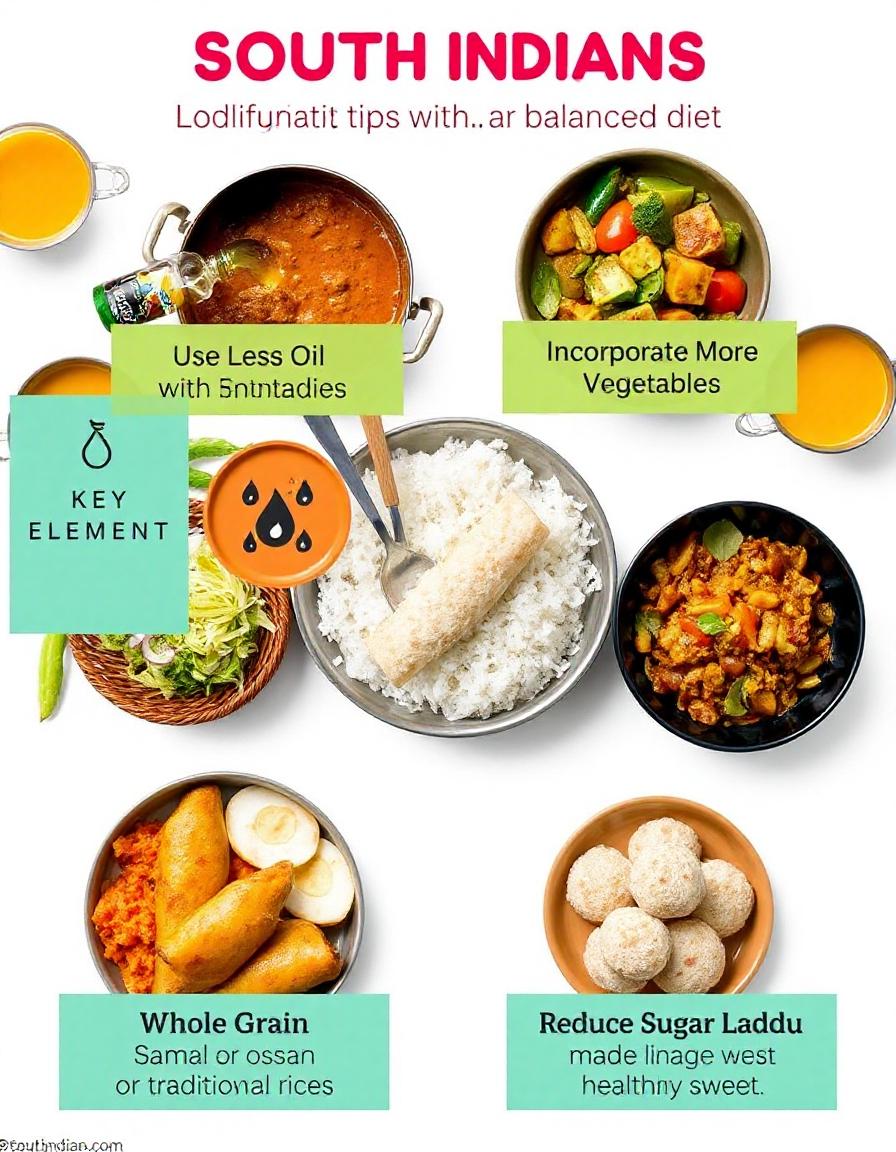
Don’t miss out! Read this post to get all the details on How to Modify South Indian Dishes for a Balanced Diet!
Frequently Asked Questions
1. What type of rice is the healthiest?
Brown rice ranks as one of the healthiest options thanks to its high fiber content. Additionally, it is rich in vitamins and minerals, enhancing its nutritional value.
2. How should I store rice to keep it fresh?
Keep rice in an airtight container in a cool, dry location. For longer preservation, store it in the refrigerator or freezer.
4. Can rice be part of a weight loss diet?
Yes, rice can be part of a weight loss diet when eaten in moderation. Opt for brown rice or other whole-grain varieties for added fiber and nutrients.
5. How does rice consumption vary across different cultures?
Rice serves as a staple across cultures, with preparation methods varying. In Asia, people steam it as a side dish. Italians cook it into creamy risottos, and Americans pair it with hearty stews and beans.

Welcome to Merge Blog!
Dive into quick, nutritious recipes, expert health tips, local food finds, and the latest in nutrition. Let’s explore healthier living together!

I’m Divya Bharathi, the person behind MergeBlog. I’m a passionate food enthusiast sharing simple, nutritious recipes and tips for a balanced lifestyle. Join me on this delicious journey!
Divya Bharathi
SUBSCRIBE & FOLLOW
MUST-READ ARTICLES
Join the Newsletter
Dive into quick, nutritious recipes, expert health tips, local food finds, and the latest in nutrition. Let’s explore healthier living together!
